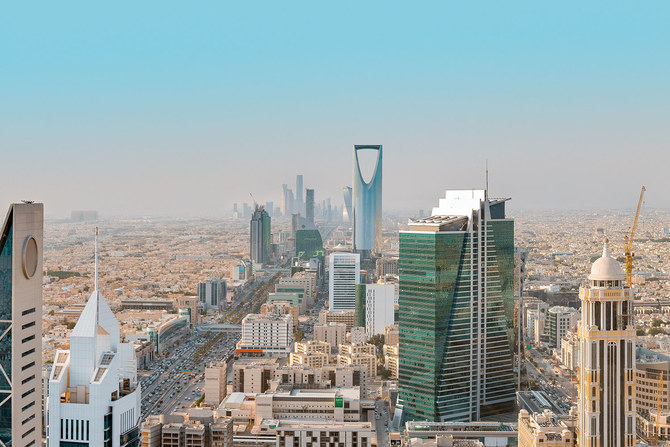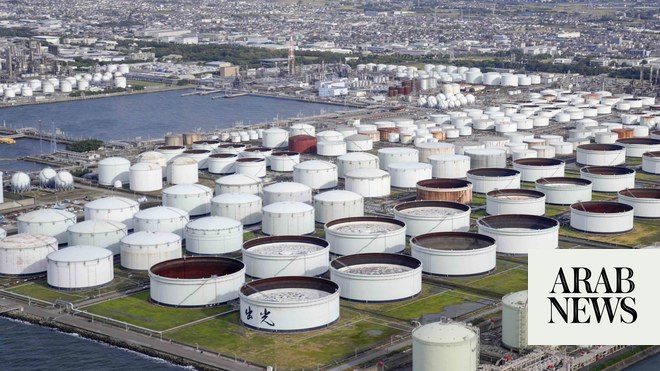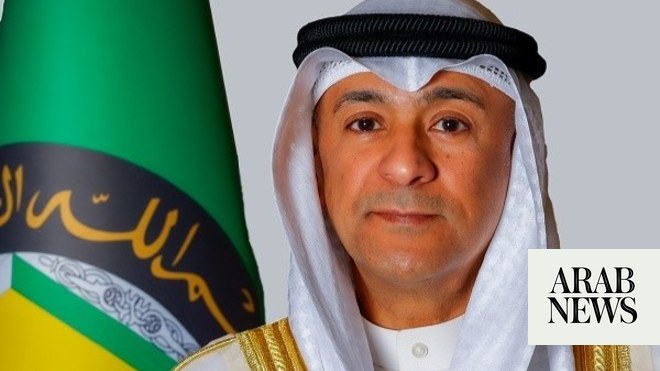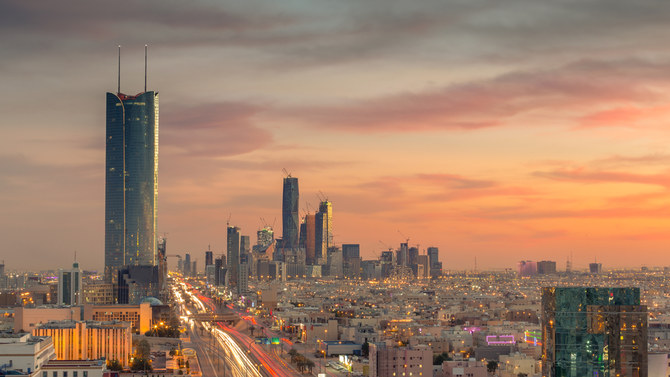
RIYADH: The UAE’s central bank has revised up its forecast for the country’s GDP growth in 2024 by 0.1 percentage points in light of expected improvements in the oil sector.
The institution had originally slated 3.9 percent growth for the 12-month period, but is now projecting an expansion of 4 percent.
In its second-quarter economic report, the bank maintained its 2025 growth forecast at 6 percent.
The analysis predicted that the non-hydrocarbon sector will grow by 5.2 percent in 2024, rising to 5.3 percent in 2025, while the hydrocarbon division is expected to see a modest 0.7 percent growth this year, increasing to 7.7 percent in 2025.
The report said: “Growth forecasts continue to be driven by tourism, transportation, financial and insurance services, construction and real estate, and communications sectors; while the current levels of oil production during 2024 partially moderate the overall growth.”
The central bank anticipated strong momentum in the hydrocarbon sector in 2025, with significant production increases. Additionally, it underlined that a rapid decline in interest rates in major advanced economies could boost global demand and encourage capital flows into emerging markets, including the UAE.
The report also revealed that non-hydrocarbon GDP growth stood at 4 percent year-on-year in the first quarter of 2024, down from 6.7 percent in the previous quarter, mainly due to a slowdown in financial and insurance services, real estate activities, construction and manufacturing.
However, the report said that “non-hydrocarbon GDP growth is expected to remain strong at 5.2 percent in 2024 and 5.3 percent in 2025,” mainly driven by strategic plans and policies that the government has undertaken to attract foreign investments and the ongoing structural reforms.
The fiscal balance for the first quarter of the year remained positive at 23.5 billion Emirati dirhams ($6.39 billion), or 4.9 percent of GDP, compared to 23.2 billion dirhams, or 5.1 percent of GDP, in the first quarter of 2023.
The UAE’s consolidated budget revenues grew by 4.3 percent year-on-year in the first quarter to 120.6 billion dirhams, or 24.9 percent of GDP, driven primarily by a 32.5 percent annual increase in tax revenues.
The central bank highlighted that the UAE’s fiscal stability is improving, with tax revenues making up an increasing share of total revenues — rising from 45.8 percent in the first quarter of 2022 to 70 percent in the first quarter of 2024 — mainly due to the recent introduction of corporate taxes.
The report also detailed government spending in the first quarter, saying: “Government expenditure in the first quarter of 2024 totaled 97.1 billion dirhams, or 20 percent of GDP, reflecting a 5 percent year-on-year increase.”
Key spending categories, including employee compensation, goods and services, and social benefits, rose by 6.3 percent, 15.2 percent, and 3.4 percent, respectively. Capital expenditures also saw a significant rise, increasing more than sevenfold to 5.6 billion dirhams.
The Central Bank of the UAE pointed to signs of expansion in the private non-oil sector, with the country’s purchasing managers’ index reaching 53.7 in July, reflecting sustained business confidence.
Employment data showed that the number of workers covered by the Wage Protection System remained stable year-on-year in June, while average monthly wages increased by 4.8 percent.
“The 16 non-oil sectors continued their robust growth pattern in Q2 2024, albeit at a more moderate rate,” the report added.
Wholesale and retail trade, manufacturing, and construction remained key pillars of non-oil sector expansion.
Various comprehensive economic partnership agreements and visa-related initiatives have boosted trade volumes and transactions, while the manufacturing sector “continued to attract greater levels of FDI (foreign direct investment), expanding in line with Operation 300 billion.”
The construction sector also advanced, with numerous new infrastructure projects underway, including Etihad Rail and the Port of Dubai Creek.












